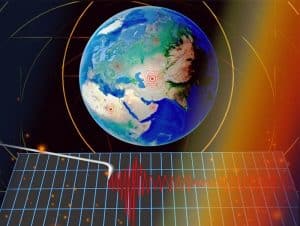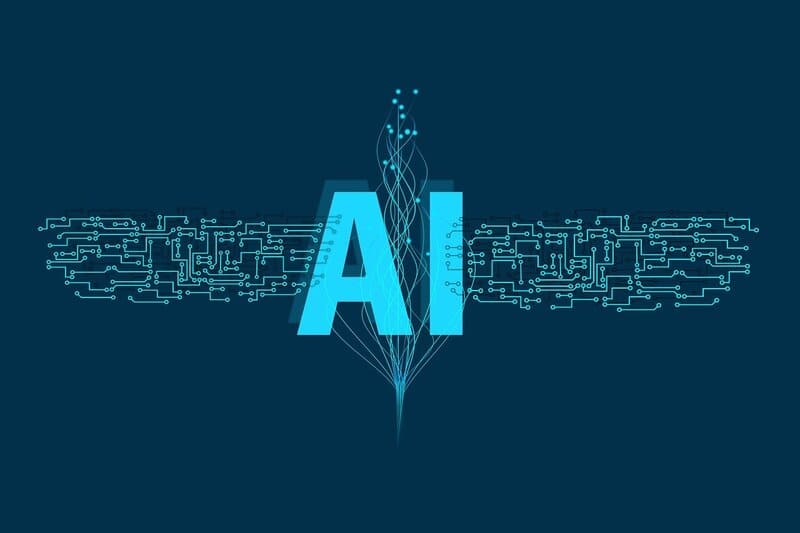With the rapid evolution of technology, artificial intelligence (AI), the art of training computers to mirror human intelligence, has become an ever-present part of daily life. Many people use AI without even realizing it: using face or fingerprint recognition to unlock a smartphone, touching up a photo with a filter, or asking Siri or Alexa to play a song or search a query using voice recognition. Scientists have even been able to use an AI algorithm to predict an earthquake before it happened with a 70% accuracy rate.
The AI Earthquake Algorithm
In a recent study, the University of Texas at Austin developed an algorithm that could change the future of earthquake prediction. Typically, a seismologist will reference a seismic event record that contains data from previous seismic events in an area and, based on the patterns in data, use this record to predict future activity. Researchers, however, believe that artificial intelligence is more beneficial because it can produce more accurate warning systems for better preparedness in regions prone to earthquakes.
To test the power of artificial intelligence to predict earthquakes, the researchers developed and tested an algorithm in areas of China where earthquakes occur frequently. They chose China because the country lies across Eurasian tectonic plates merged with the plates of the Indian Ocean and the Philippine Sea, which are hotbeds of seismic activity.
The researchers trained the algorithm to correlate with seismic data from prior earthquakes in the region to get a more accurate outlook on detecting statistical bumps of inputted data in real-time. Using the data the algorithm collected and comparing it to previous activity in the region, the AI could pinpoint almost the exact location of the epicenter 200 miles from where researchers originally predicted.
Over seven months, the researchers discovered that the algorithm accurately predicted 14 earthquakes before any seismic activity occurred. In contrast, it predicted false activity 8 times and inaccurately predicted an actual seismic event only once. Overall, this meant that the AI had a 70% accuracy rate when predicting earthquakes. Using AI to build more precise warning systems will be a game-changer for China and other regions that experience regular earthquakes.
How AI Will Improve Warning Systems

Since the algorithm the researchers at the University of Texas used had an over 70% accuracy rate, it raises the question of how else artificial intelligence can be used to predict seismic events. Another recent study suggests that the technology can be trained to successfully detect when and if an earthquake will happen based on signals emitted from the Earth’s gravitational fields.
According to that study, once the signal is detected, the database would relay the information to a computer system through artificial intelligence to determine an earthquake’s size, location, and magnitude. Once these data points are pinpointed, seismologists could provide an early warning to the area that the earthquake is predicted to affect.
Seismologists are also interested in training artificial intelligence to analyze gravitational signals from gravitational waves. Analyzing gravitational waves and determining the ripples in space-time may be able to predict the movement of tectonic plates at the speed of light for the most precise artificial intelligence algorithm to date. Potentially, that algorithm could accurately detect an earthquake using only the slightest gravitational signal.
This algorithm could prove to be much faster and more accurate than a seismometer, which measures the vibrations of movements from tectonic plates as the earthquake is happening. Seismometers have failed to produce accuracy in past earthquake predictions because they only measure the distances between seismic waves, making artificial intelligence a stronger choice for future detection of seismic events.
Final Thoughts
Changing how earthquakes are predicted can help seismologists create more advanced warning systems using algorithms for measuring gravitational waves and the statistical bumps in data from previously recorded seismic events. These algorithms are the future of earthquake prediction because they cannot only predict the precise areas and magnitude with 70% accuracy, but can also do so days ahead of an actual seismic event. People in or around the areas affected will then be given a fair chance to prepare to save lives and economies from these disasters.
For More Great Content
Are you desiring top-tier content that covers everything? Total Apex covers everything from thrilling sports and intoxicating entertainment news to gaming tips and professional betting advice. Delve into our no-fluff articles to stay ahead of the game with the latest sports action, uncover the hottest trends in entertainment, and get the latest scoops in the gaming industry that will take your experiences to the next level.
Finally, our betting advice will give you a decisive edge over the competition and increase your odds of beating the books. Whether you want to stay updated or gain a competitive edge, Total Apex is your one-stop shop for all things compelling and relevant. Don’t forget we cover Fantasy Sports, too!
Check out all our sites: Total Apex Sports, Total Apex Fantasy Sports, Total Apex Entertainment, Total Apex Sports Bets, and Total Apex Gaming. Out of the ashes of obscurity will rise a beast. Always remember to Respect The Hustle! Follow us on Twitter/X @TotalApexSports to stay informed.




